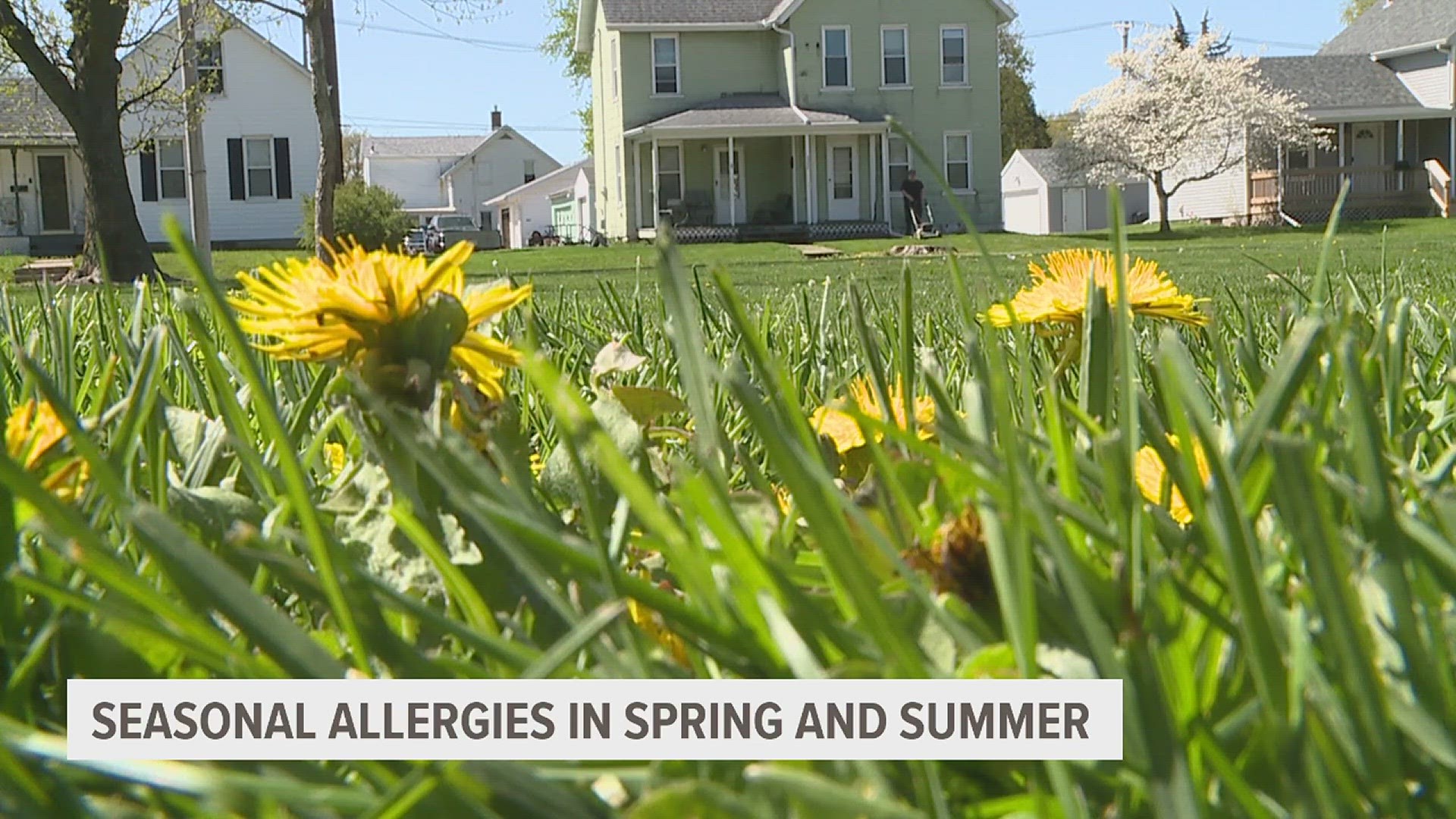MOLINE, Ill. — This past weekend, we got a break from the wildfire smoke entering our skies due to the fires that are happening in Canada. But over the next couple of days, that smoke will be making its way back into the QCA.
We are already in tree pollen allergy season and are about to enter grass pollen allergy season, but the added smoke could make your allergies or asthma worse over the next couple of days.
Wildfire particles can reach into the deepest parts of lung tissues and increase inflammation. Smoke can cause mucus production and irritate your airways, which can cause asthma exacerbations. If you suffer from asthma, you can experience shortness of breath, wheezing and chest pains. The particles can cause throat irritation, sneezing, coughing, runny nose and nasal congestion which can mimic allergy symptoms.
Even if the fire is far away, in this case in another country, the air pollutants around you can still be toxic because wildfire smoke can travel thousands of miles and change directions quickly depending on wind patterns.
It is best to minimize your exposure to smoke by staying indoors as much as possible with your windows and doors closed. You can also use a high-efficiency particulate air (HEPA) filter to reduce aeroallergen and irritant exposers. If you suffer from asthma, it is best to always have a rescue inhaler with you, especially if you are going to be outside. You can also wear an N95 or P-100 mask to reduce inhalation of particulate pollutants.
It is best to stay informed in the following days about the air quality in the QCA. That will inform you about how cautious you need to be when outside or limit outdoor activities.
Watch more news, weather and sports on News 8's YouTube channel

